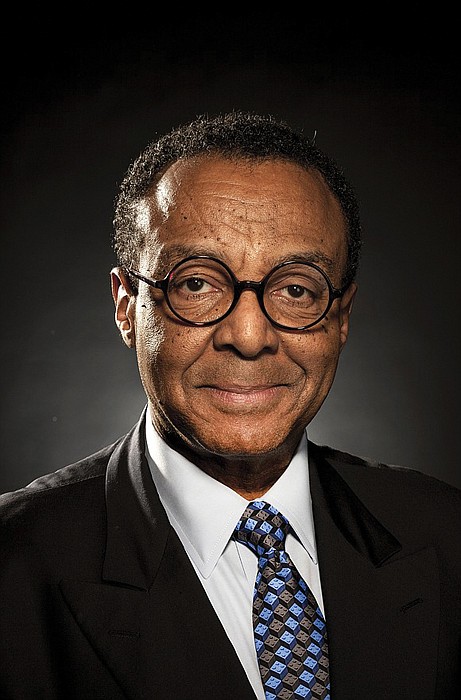When vigilantism becomes a campaign stunt, by Clarence Page
5/25/2023, 6 p.m.
On his way to see whether his expected presidential bid can play in Peoria, Fla., Gov. Ron DeSantis upstaged himself with a news making tweet.
“We stand with Good Samaritans like Daniel Penny,” he tweeted Friday about the former Marine accused in the May 1 killing of Jordan Neely, a homeless man who had been shouting in the faces of other passengers on a New York subway.
“Let’s show this Marine ...” Gov. DeSantis tweeted, “America’s got his back.”
At least Gov. DeSantis does—and he’s not alone.
When I last visited the sad case of the “subway vigilante,” as some are calling Mr. Penny, he was not yet arrested or charged, despite a groundswell of people calling for it after the video was broadcast. Rep. Alexandria Ocasio-Cortez, D-New York, among others, wanted Penny charged with murder.
But I agreed with Mayor Eric Adams that simple justice requires that we wait for police to investigate before jumping to conclusions. Mr. Penny deserved to be presumed innocent until proven guilty, I felt. I’m kind of old-fashioned that way.
But, by the time the Manhattan district attorney’s office charged him with second degree manslaughter, Mr. Penny found a bigger groundswell of financial and online support from high-profile Republicans such as Gov. DeSantis, Fox News personalities and other conservatives.
Many hailed Mr. Penny as a “hero” and “Good Samaritan” and raised nearly $2 million from Kid Rock and others for his legal defense through an online fund.
Gov. DeSantis similarly joined many others on the right who sought to turn Mr. Penny into a martyr being punished by the “deep state” for supposedly defending public order. Mr. DeSantis in this fashion joined former President Donald Trump as a leading contender for the 2024 GOP presidential nomina- tion celebrating vigilante “jus- tice” in the fashion of Charles Bronson in “Death Wish.”
Did we, as a country, ask for this? Like it or not, that’s what we have in today’s politi- cal world as “tough on crime” has taken on a particularly ruthless odor.
There are cases, such as Edward Gallagher, the Navy SEAL accused by members of his own unit of killing multiple unarmed civilians. Mr. Trump pardoned him.
More recently, Texas Republican Gov. Greg Abbott promised to pardon a man convicted of the 2020 murder of a Black Lives Matter protester.
It would be easy to cast these episodes of trial-by-media as election year excesses, except thisisn’tanelectionyear.Not quite, although for some people it seems the “election year” never ends.
So far, there is no evidence that Mr. Neely assaulted anyone on the subway, but Mr. Penny acted to restrain him in a chokehold anyway, and at least one other passenger acted to assist him by grabbing Mr. Neely’s arms. Mr. Neely also may have been turned on his side in an effort to prevent him from chok- ing on his saliva. But when he was taken to the hospital, he was pronounced dead.
To prove guilt of second degree manslaughter, prosecutors will have to demonstrate beyond a reasonable doubt that Mr. Penny “recklessly” caused Mr. Neely’s death. Under New York state law, The New York Times reports, a person is deemed to have acted recklessly when he engages in conduct which creates or contributes to a substantial or unjustifiable risk that another person’s death will occur.
Considering the circumstances, there’s a good chance that the outcome won’t satisfy very many of us, regardless of which side we’re on. As a lawyer friend of mine put it, “Justice? You’re not going to have any real justice as long as there’s no way to bring that dead man back to life.”
Indeed, there’s no way around the simple truth in these instances that the system has failed, especially for Mr. Neely, a homeless street performer who had a long sheet of arrests and treatments in a social service system that wasn’t there when he needed it most.
Now the state’s justice sys- tem must decide whether Mr. Penny was criminally “reckless” or just trying to help. The system needs to seek justice, not just revenge.
The writer is a member of the Chicago Tribune’s editorial board and a columnist for the newspaper.







